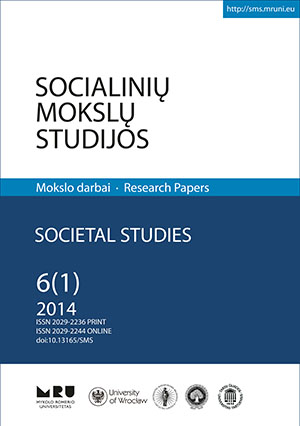Regional institutionalism in Southeast Asia
Regional institutionalism in Southeast Asia
Author(s): Mindaugas NorkevičiusSubject(s): Social Sciences
Published by: Mykolas Romeris University
Keywords: regionalism; regional institutionalism; Southeast Asia; international organizations
Summary/Abstract: This article demonstrates how regional institutions in Southeast Asia help solving common problems (political, security, economic, environmental, social, cultural, ect.), form common rules, norms and customs for cooperation, create the agreed agendas for regional issue management. In the article, using a neo-liberal institutionalism approach, it has been ascertained what factors influence the effectiveness of the selected intergovernmental regional institutions in Southeast Asia, facilitate the regional response and reaction to common regional (economic, security, political, social) challenges. Regional agenda usually depends on actors, regional order (power structure within the region) as well as on regional identity. Institutions legitimate the region, but on the other hand, regional identity legitimates institutions. Theoretical paradigm in the article is neo-liberalism. Two requirements should be fulfilled in order for neo-liberal institutionalism to be aplicable: (1) there should be common interests (as gains are achieved through cooperation), (2) it is required that variations in the degree of institutionalization would exert substantial effects on the state’s policy. The article analyzes how regional institutions in Southeast Asia form the possibility for the region to emerge as a single actor in the international system. Analysis of multi-purpose regional institutions in ASEAN demonstrates how organization serves the purpose of enhancing the efficiency of transactions among states, but the ambiguity in them also functions as a tool to manage distribution of power.
Journal: Socialinių mokslų studijos
- Issue Year: 6/2014
- Issue No: 1
- Page Range: 98–113
- Page Count: 16
- Language: English

